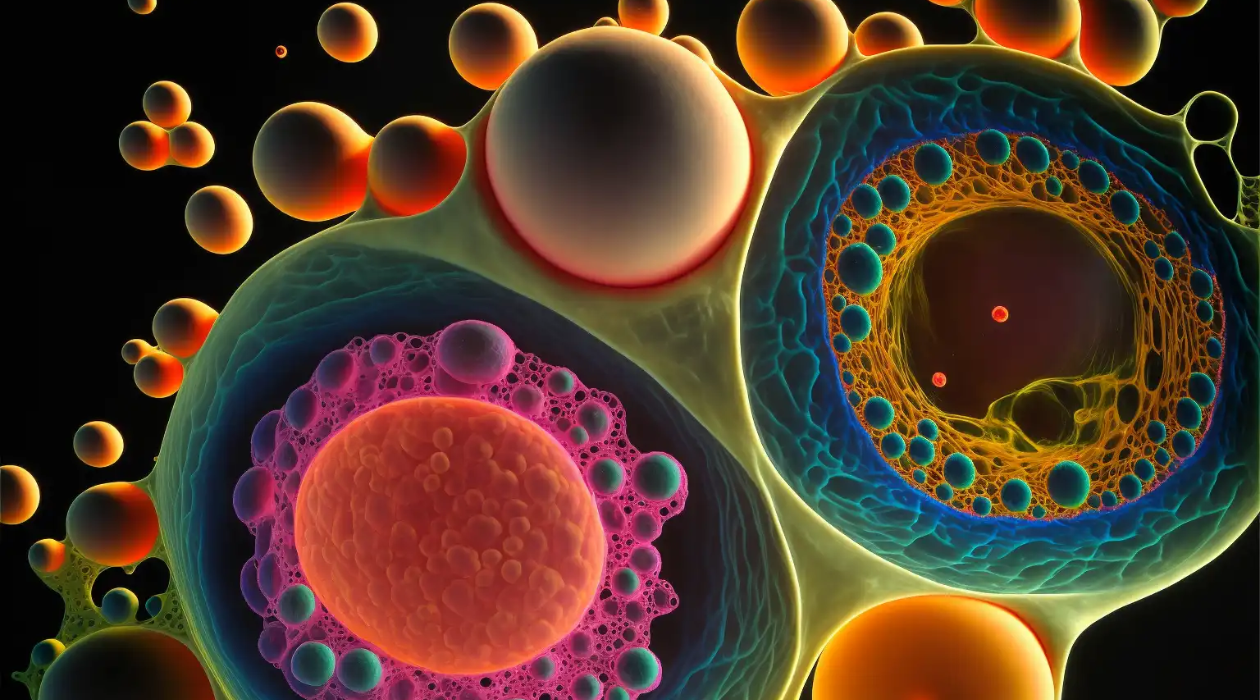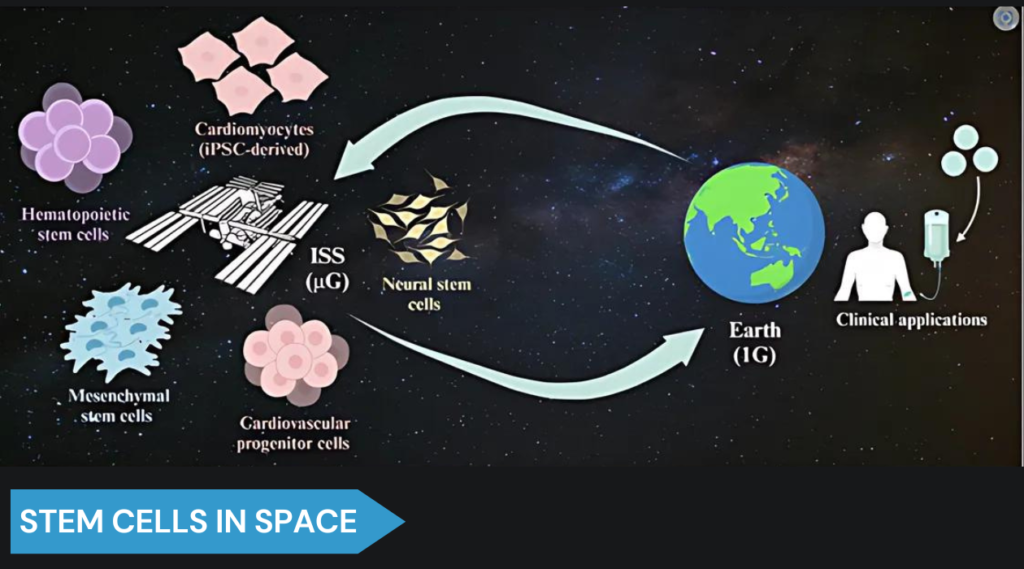

Transforming Pulmonary Care with
Advanced Stem Cell Therapy at Auragens
ASTHMA | CHRONIC BRONCHITIS | COPD | EMPHYSEMA | PULMONARY FIBROSIS

Stem cell treatments offer new hope for patients with pulmonary diseases where conventional therapies fall short.
Conditions like COPD, pulmonary fibrosis, and asthma involve chronic inflammation and lung damage, which mesenchymal stem cells (MSCs) can address by reducing inflammation, repairing tissue, and improving lung function.
Unlike symptom-managing medications, stem cell therapy targets the root causes of lung deterioration for lasting improvement.

Our team of highly experienced medical professionals is available to assist you with any questions you have about stem cell treatment.
Stem cell therapies represent a promising approach to restoring function in patients with advanced lung diseases by promoting tissue repair and modulating the immune response.
– Dr. Mark Nicolls, Stanford University School of Medicine

Purchase your copy of Exosomal Elixir, written by Auragens’ very own Dr. James Utley and Dr. Daniel Briggs
Exosomal Elixir: Unleashing the Healing Potential of Mesenchymal Stem Cell-Derived Exosomes
by
Embark on a transformative journey into the realm of regenerative medicine with our groundbreaking publication, “Exosomal Elixir.” This pivotal book serves as a comprehensive guide for anyone captivated by the potential of Mesenchymal Stem Cell (MSC)-derived exosomes in therapeutic applications.
Delve into the intricate world of Mesenchymal Stem Cells and their remarkable ability to give rise to exosomes – tiny yet powerful agents of healing and regeneration. “Exosomal Elixir” isn’t just a window into advanced scientific research; it’s a gateway to understanding how these microscopic marvels are revolutionizing the field of cellular healing.
Witness the emergence of exosome research as a game-changer in biomedical innovations. Learn about the synergistic relationship between MSCs and their derived exosomes, which collectively open new frontiers in treating and healing various medical conditions.
Ideal for healthcare professionals, biologists, and anyone intrigued by the cutting-edge of medical science, this book is your key to comprehending the remarkable capabilities of therapeutic exosomes.
“Exosomal Elixir” is more than just a book; it’s a beacon of knowledge in the pursuit of understanding and harnessing the healing powers of stem cell therapy and exosome research. Secure your copy today and be a part of this exciting journey into the future of regenerative medicine!
We are optimistic about stem cells’ ability to regenerate lung tissue, which could be life-changing for patients suffering from conditions like COPD and pulmonary fibrosis.
-Dr. Barry Stripp, Cedars-Sinai Medical Center

SPECIALIZED PULMONARY TREATMENTS
Use of Umbilical Cord-Derived Mesenchymal Stem Cells (hUC-MSCs) to Treat Asthma
Introduction
Asthma is a chronic respiratory disease that affects millions of people globally, characterized by airway inflammation, narrowing of the airways, and increased mucus production. This leads to breathing difficulties, coughing, and wheezing. While various medications are available for asthma management, they often come with limitations and side effects. As a result, researchers are investigating innovative therapies, such as the use of stem cells, to provide better management options for asthma. Umbilical-derived mesenchymal stem cells (UMSCs) have emerged as a promising treatment due to their regenerative and immunomodulatory properties (Oloo Ong’ong’a, 2023).
What Are Mesenchymal Stem Cells?
Mesenchymal stem cells (MSCs) are multipotent cells found in various tissues, such as bone marrow, adipose tissue, and umbilical cord tissue. These cells have the ability to differentiate into various cell types, including bone, cartilage, and fat cells. Additionally, MSCs possess immunomodulatory properties, allowing them to suppress inflammation and regulate immune responses, making them ideal candidates for treating inflammatory conditions like asthma (Mo et al., 2022).
UMSCs in Asthma Treatment
Recent studies have shown that UMSCs hold potential as a therapeutic option for asthma. These cells can reduce airway inflammation, decrease airway hyperresponsiveness, and improve lung function. UMSCs release factors that suppress inflammation and promote tissue repair, which is critical in managing asthma symptoms. In a study published in Stem Cells Translational Medicine, UMSCs were found to be safe and well-tolerated in patients with moderate to severe asthma. The study demonstrated significant improvements in lung function, quality of life, and asthma control among patients who received UMSC therapy compared to those who received a placebo (Sharan et al., 2022).
Another study published in the Journal of Translational Medicine explored the combined use of UMSCs with traditional asthma medications. The results showed that patients who received UMSCs alongside standard asthma treatments experienced significant improvements in lung function, asthma control, and overall quality of life compared to those receiving standard treatments alone (Lin et al., 2023).
Conclusion
UMSCs have shown promise as a potential therapy for asthma due to their ability to reduce inflammation, decrease airway hyperresponsiveness, and improve lung function. They have been found to be safe and well-tolerated in clinical studies. While further research is necessary to confirm the effectiveness of UMSCs in asthma treatment, the early results are promising. Stem cell therapy could become a valuable addition to current asthma treatment options, potentially improving the quality of life for many people living with this chronic condition.
References
Oloo Ong’ong’a, (2023). First Report in a Human of Successful Treatment of Asthma with Mesenchymal Stem Cells: A Case Report with Review of Literature. Current Stem Cell Research & Therapy.
Mo, Y., Kang, S. Y., Bang, J., Kim, Y., Jeong, J., Kim, H. Y., Cho, S. H., & Kang, H. R. (2022). Intravenous Mesenchymal Stem Cell Administration Modulates Monocytes/Macrophages and Ameliorates Asthmatic Airway Inflammation in a Murine Asthma Model. Molecules and Cells.
Lin, Q., Yu, T., Li, X., Fan, Y., & Xu, L. (2023). Umbilical cord mesenchymal stem cells inhibited inflammation of bronchial epithelial cells by regulating Hedgehog pathway. European Journal of Histochemistry.
Use of Umbilical Cord-Derived Mesenchymal Stem Cells (hUC-MSCs) to Treat Chronic Bronchitis
Introduction
Chronic bronchitis is a respiratory disease characterized by persistent inflammation and narrowing of the airways, leading to symptoms such as coughing, mucus production, and difficulty breathing. While medications and pulmonary rehabilitation are common treatments, ongoing research has explored alternative therapies, including stem cell therapy. One promising approach is the use of umbilical-derived mesenchymal stem cells (hUC-MSCs), which offer regenerative potential and immunomodulatory effects, making them attractive candidates for chronic bronchitis treatment (Lin et al., 2023).
What Are Mesenchymal Stem Cells?
Mesenchymal stem cells (MSCs) are multipotent adult stem cells that can differentiate into various cell types, such as bone, cartilage, and muscle. MSCs also possess immunomodulatory properties, enabling them to regulate immune responses and reduce inflammation. These cells can be sourced from various tissues, including bone marrow, adipose tissue, and umbilical cord tissue, making them versatile tools in regenerative medicine (Hoang et al., 2021).
Why Umbilical Cord-Derived MSCs?
Umbilical cord-derived MSCs (hUC-MSCs) offer several advantages over other MSC sources. First, they can be non-invasively collected from discarded umbilical cords, raising no ethical concerns. Second, hUC-MSCs demonstrate higher proliferative capacity, allowing for large-scale expansion for therapeutic purposes. Third, these cells express lower levels of human leukocyte antigen (HLA) proteins, reducing the risk of immune reactions and making them suitable for allogeneic transplants (Ridzuan et al., 2021).
How Can Umbilical Cord-Derived MSCs Treat Chronic Bronchitis?
Preclinical studies have demonstrated the therapeutic potential of hUC-MSCs in respiratory conditions. A study published in Stem Cells International showed that hUC-MSCs could reduce inflammation and promote tissue repair in a mouse model of chronic bronchitis. The researchers observed reduced inflammation and enhanced tissue repair following hUC-MSC administration. Another study published in Stem Cell Research & Therapy demonstrated that hUC-MSCs promoted lung cell growth and reduced inflammation in vitro, supporting their potential in treating chronic bronchitis (Zhang et al., 2024).
Thes findings suggest that hUC-MSCs could reduce inflammation, promote tissue repair, and potentially improve lung function in patients with chronic bronchitis. However, while these preclinical results are promising, further research and clinical trials are needed to confirm their safety and efficacy in human patients.
Conclusion
hUC-MSCs present a promising potential treatment for chronic bronchitis due to their regenerative and immunomodulatory properties. Early studies have demonstrated their ability to reduce inflammation and promote tissue repair in the lungs. Although further research is necessary to confirm their effectiveness in human patients, hUC-MSCs may become a valuable addition to the treatment options available for chronic bronchitis and other respiratory diseases.
References
Lin, Q., Yu, T., Li, X., Fan, Y., & Xu, L. (2023). Umbilical cord mesenchymal stem cells inhibited inflammation of bronchial epithelial cells by regulating Hedgehog pathway. European Journal of Histochemistry.
Hoang, D. M., Nguyen, K. T., Nguyen, A. H., Nguyen, B. N., & Nguyen, L. T. (2021). Allogeneic human umbilical cord-derived mesenchymal stem/stromal cells for chronic obstructive pulmonary disease (COPD): study protocol for a matched case-control, phase I/II trial. BMJ Open.
Ridzuan, N., Zakaria, N., Widera, D., Sheard, J., Morimoto, M., Kiyokawa, H., Isa, S. A. M., Singh, G. K. C., Then, K., Ooi, G. C., & Yahaya, B. H. (2021). Human umbilical cord mesenchymal stem cell-derived extracellular vesicles ameliorate airway inflammation in a rat model of chronic obstructive pulmonary disease (COPD). Stem Cell Research & Therapy.
Zhang, X., Hu, T., Yu, X., Wang, T., Jiang, L., Sun, L., & Han, W. (2024). Human umbilical cord mesenchymal stem cells improve lung function in chronic obstructive pulmonary disease rat model through regulating lung microbiota. Stem Cells.
Use of Umbilical Cord-Derived Mesenchymal Stem Cells (hUC-MSCs) to Treat Chronic Obstructive Pulmonary Disease (COPD)
Introduction
Chronic Obstructive Pulmonary Disease (COPD) is a progressive and debilitating lung disease characterized by chronic bronchitis and emphysema, resulting in restricted airflow and breathing difficulties. Current treatments focus on managing symptoms and slowing disease progression, but there is no cure for COPD. Recent research, however, suggests that umbilical-derived mesenchymal stem cells (hUC-MSCs) may offer a promising new approach to treating COPD by leveraging their regenerative and anti-inflammatory properties (Zhang et al., 2024).
What Are UC-MSCs?
hUC-MSCs are stem cells found in the umbilical cord of newborns. These cells are known for their ability to self-renew and differentiate into various cell types, such as bone, cartilage, and muscle cells. Unlike other stem cell sources, hUC-MSCs can be collected non-invasively from discarded umbilical cords, which makes them an ethically sound and accessible option for stem cell therapy. Additionally, hUC-MSCs exhibit high proliferative capacity and low immunogenicity, making them ideal candidates for allogeneic therapies in regenerative medicine (Trung et al., 2023).
How Can UC-MSCs Help COPD Patients?
hUC-MSCs offer several therapeutic benefits for COPD patients. First, their anti-inflammatory properties can reduce the chronic inflammation in the lungs that contributes to COPD progression. Reducing inflammation could slow the disease’s advancement and alleviate symptoms. Second, hUC-MSCs possess regenerative abilities, which may help repair damaged lung tissue, thereby improving lung function and reducing breathing difficulties. Lastly, hUC-MSCs have immunomodulatory properties, which allow them to regulate the immune response, a key factor in COPD management, as the disease is often associated with immune dysfunction (Martin-Medina et al., 2023).
Clinical Trials on UC-MSCs and COPD
Several clinical trials have investigated the potential of hUC-MSCs as a therapy for COPD. For example, a Phase I clinical trial administered hUC-MSCs to patients with severe COPD, finding that the treatment was safe, well-tolerated, and associated with a trend toward improved lung function. Another Phase I trial involving patients with moderate to severe COPD also demonstrated the safety of hUC-MSC therapy and showed significant improvements in lung function in the treated group compared to the control group. These promising results highlight the potential of hUC-MSCs as a viable therapeutic option for COPD (Perez et al., 2023).
Conclusion
Umbilical-derived mesenchymal stem cells (hUC-MSCs) hold significant promise as a potential therapy for COPD due to their anti-inflammatory, regenerative, and immunomodulatory properties. Clinical trials have shown that hUC-MSCs are safe and may improve lung function in COPD patients. While more research is needed to fully understand the therapeutic potential of hUC-MSCs, these cells could represent a breakthrough in the treatment of this debilitating disease.
References
Zhang, X., Hu, T., Yu, X., Wang, T., Jiang, L., Sun, L., & Han, W. (2024). Human umbilical cord mesenchymal stem cells improve lung function in chronic obstructive pulmonary disease rat model through regulating lung microbiota. Stem Cells.
Trung, D. M., Bang, D., Ha, L. P., Thang, T. B., Mão, C. V., Phượng, L. T., & Hùng, D. K. (2023). Evaluating the plasma interleukin-1 beta and interleukin-8 levels in patients with chronic obstructive pulmonary diseases following treatment with allogeneic mesenchymal stem cell derived from umbilical cord tissues and platelet-rich plasma. Vietnam Journal of Biotechnology.
Martin-Medina, A., de Rio, C., Jahn, A. K., Calvo Bota, A. M., De Francisco Casado, M. T., Pont Antona, P. J., & Sala-Llinas, E. (2023). Mesenchymal stem cells from COPD patients are capable of restoring elastase-induced emphysema in a murine experimental model. International Journal of Molecular Sciences.
Perez, J. A., Parcero Valdes, J. J., Moreno, R. C., Gomez Cuevas, L. I., Lopez, J. J., Ichim, T., McGreevy, K., Lin, F., Kesari, S., & Datta, S. (2023). Intravenous administration of umbilical cord-derived mesenchymal stem cells (UC-MSC) for acute respiratory distress syndrome due to COVID-19 infection. Cureus.
Use of Umbilical Cord-Derived Mesenchymal Stem Cells (hUC-MSCs) to Treat Emphysema
Introduction
Emphysema is a progressive respiratory disease that severely impairs lung function due to the destruction of the alveoli, the small air sacs in the lungs responsible for oxygen exchange. This leads to breathing difficulties and reduced oxygen uptake, with no current cure available. However, recent research has identified umbilical-derived mesenchymal stem cells (hUC-MSCs) as a promising potential therapy for this debilitating condition, offering anti-inflammatory and regenerative properties that could help improve lung function (Laiman et al., 2022).
What Are UC-MSCs?
Umbilical-derived mesenchymal stem cells (hUC-MSCs) are multipotent stem cells found in the umbilical cord that can differentiate into various cell types. These cells are collected non-invasively from the umbilical cord after birth, making them an ethically sound and easily accessible source for stem cell therapy. hUC-MSCs are known for their regenerative abilities, anti-inflammatory effects, and immunomodulatory properties, which make them an attractive treatment option for diseases like emphysema (Chen et al., 2022).
How Can UC-MSCs Help Emphysema Patients?
Research has shown that hUC-MSCs can significantly improve lung function in animal models of emphysema. For example, in a study published in Regenerative Therapy, hUC-MSCs were used to treat rats with induced emphysema, leading to reduced inflammation, apoptosis prevention, and enhanced tissue repair. Another study published in International Journal of Molecular Sciences demonstrated that hUC-MSCs could alleviate emphysema severity in mice, reducing inflammatory markers and promoting lung regeneration (Zhang et al., 2024).
These studies suggest that hUC-MSCs could be a viable treatment option for emphysema by reducing lung inflammation, promoting tissue regeneration, and protecting against further lung damage. hUC-MSCs also show promise in improving overall lung function and slowing disease progression.
Clinical Trials Using UMSCs to Treat Emphysema
Clinical trials are currently underway to investigate the safety and efficacy of hUC-MSCs in treating emphysema in humans. In one trial conducted in China, patients with advanced emphysema received hUC-MSCs through intravenous injection, and initial results indicate that the treatment was safe and well-tolerated. Another trial in Spain is evaluating the effects of hUC-MSCs on patients with severe emphysema who have not responded to traditional treatments. These trials aim to assess both the safety and therapeutic potential of hUC-MSCs administered intravenously or via inhalation (Medina et al., 2023).
Conclusion
While still in the early stages of research, hUC-MSCs hold significant promise as a potential therapy for emphysema. Preclinical studies suggest that these cells can reduce inflammation, promote tissue repair, and improve lung function in animal models. Ongoing clinical trials are expected to provide more insights into the safety and efficacy of hUC-MSCs in humans. If successful, hUC-MSCs could represent a groundbreaking new treatment option for emphysema, offering hope for improved outcomes in patients with this challenging condition.
References
Laiman, V., Lee, Y.-L., Hou, Y., Fang, Y.-T., Chen, Y.-Y., Lo, Y.-C., et al. (2022). Reduction of Emphysema Severity by Human Umbilical Cord-Derived Mesenchymal Stem Cells in Mice. International Journal of Molecular Sciences.
Chen, Q., Lin, J., Deng, Z., & Qian, W. (2022). Exosomes derived from human umbilical cord mesenchymal stem cells protect against papain-induced emphysema by preventing apoptosis through activating VEGF-VEGFR2-mediated AKT and MEK/ERK pathways in rats. Regenerative Therapy.
Zhang, X., Hu, T., Yu, X., Wang, T., Jiang, L., Sun, L., & Han, W. (2024). Human umbilical cord mesenchymal stem cells improve lung function in chronic obstructive pulmonary disease rat model through regulating lung microbiota. Stem Cells.
Medina, A. M., de Rio, C., Jahn, A. K., et al. (2023). Mesenchymal Stem Cells from COPD Patients Are Capable of Restoring Elastase-Induced Emphysema in a Murine Experimental Model. International Journal of Molecular Sciences.
Use of Umbilical Cord-Derived Mesenchymal Stem Cells (hUC-MSCs) to Treat Pulmonary Fibrosis
Introduction
Pulmonary fibrosis is a chronic and progressive lung disease that leads to scarring of lung tissue, resulting in reduced lung function and breathing difficulties. Currently, there is no cure for pulmonary fibrosis, and treatment options are limited. However, recent research suggests that umbilical-derived mesenchymal stem cells (hUC-MSCs) may offer a promising new therapy for this debilitating condition, with their regenerative and anti-inflammatory properties showing potential in treating pulmonary fibrosis (Chu et al., 2023).
What Are Umbilical-Derived Mesenchymal Stem Cells?
Mesenchymal stem cells (MSCs) are multipotent adult stem cells found in various tissues, such as bone marrow, adipose tissue, and umbilical cord tissue. These cells have the capacity to differentiate into several cell types, including bone, cartilage, and muscle cells. Additionally, MSCs have potent anti-inflammatory and immunomodulatory properties, making them valuable in regenerative medicine. Umbilical-derived MSCs are isolated from Wharton’s jelly in the umbilical cord, a rich source of MSCs that can be non-invasively collected after childbirth, offering a convenient and ethical source for stem cell therapy (Chen et al., 2023).
How Can Umbilical-Derived MSCs Be Used to Treat Pulmonary Fibrosis?
Research has demonstrated that hUC-MSCs can reduce inflammation, promote tissue repair, and improve lung function in preclinical models of pulmonary fibrosis. For instance, a study published in International Journal of Molecular Sciences compared the effectiveness of hUC-MSCs and adipose-derived MSCs (ADMSCs) in treating pulmonary fibrosis in rats. The study found that hUC-MSCs were more effective in reducing fibrosis and improving lung function, showing higher efficacy in lung tissue regeneration compared to ADMSCs (Chu et al., 2023).
Moreover, hUC-MSCs have shown the ability to secrete hepatocyte growth factor (HGF), a key anti-fibrotic factor that helps to reduce the severity of pulmonary fibrosis. This was highlighted in a study where rats with induced pulmonary fibrosis received hUC-MSCs overexpressing HGF, resulting in improved lung function and reduced fibrosis (Chen et al., 2023).
Clinical Trials Using UMSCs to Treat Pulmonary Fibrosis
Clinical trials exploring the use of hUC-MSCs for pulmonary fibrosis in humans are ongoing. A Phase I clinical trial demonstrated the safety and feasibility of using hUC-MSCs to treat patients with pulmonary fibrosis. The study showed that hUC-MSCs were well-tolerated and led to improvements in lung function and quality of life for the patients involved. These trials represent a critical step toward understanding the therapeutic potential of hUC-MSCs in treating pulmonary fibrosis (Khajvand-Abedini et al., 2022).
Conclusion
Umbilical-derived mesenchymal stem cells (hUC-MSCs) present a promising new avenue for treating pulmonary fibrosis. Preclinical studies and clinical trials have demonstrated their ability to reduce inflammation, promote tissue repair, and improve lung function in models of pulmonary fibrosis. While more research is needed to fully understand the safety, efficacy, and long-term effects of hUC-MSC therapy in humans, these stem cells could potentially offer a new and effective treatment option for patients suffering from this chronic lung disease.
References
Chu, K.-A., Yeh, C.-C., Hsu, C.-H., Hsu, C.-W., Kuo, F. H., Tsai, P. J., & Fu, Y. S. (2023). Reversal of Pulmonary Fibrosis: Human Umbilical Mesenchymal Stem Cells from Wharton’s Jelly versus Human-Adipose-Derived Mesenchymal Stem Cells. International Journal of Molecular Sciences.
Chen, H.-H., Luo, Y., Zhu, Y., Ye, Y., Chen, D., Song, X., Xiao, Z.-P., Li, M., & Li, S. (2023). Enhanced secretion of hepatocyte growth factor in human umbilical cord mesenchymal stem cells ameliorates pulmonary fibrosis induced by bleomycin in rats. Frontiers in Pharmacology.
Khajvand-Abedini, M., Bahmani, M., Ziamajidi, N., Nourian, A., Habibi, P., Heidarisasan, S., & Abbasalipourkabir, R. (2022). The Restoring Effect of Human Umbilical Cord-Derived Mesenchymal Cell-Conditioned Medium (hMSC-CM) against Carbon Tetrachloride-Induced Pulmonary Fibrosis in Male Wistar Rats. International Journal of Inflammation. https://typeset.io/papers/the-restoring-effect-of-human-umbilical-cord-derived-oqb5t9ta













